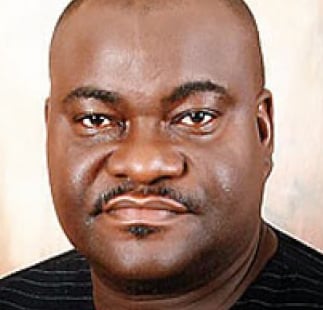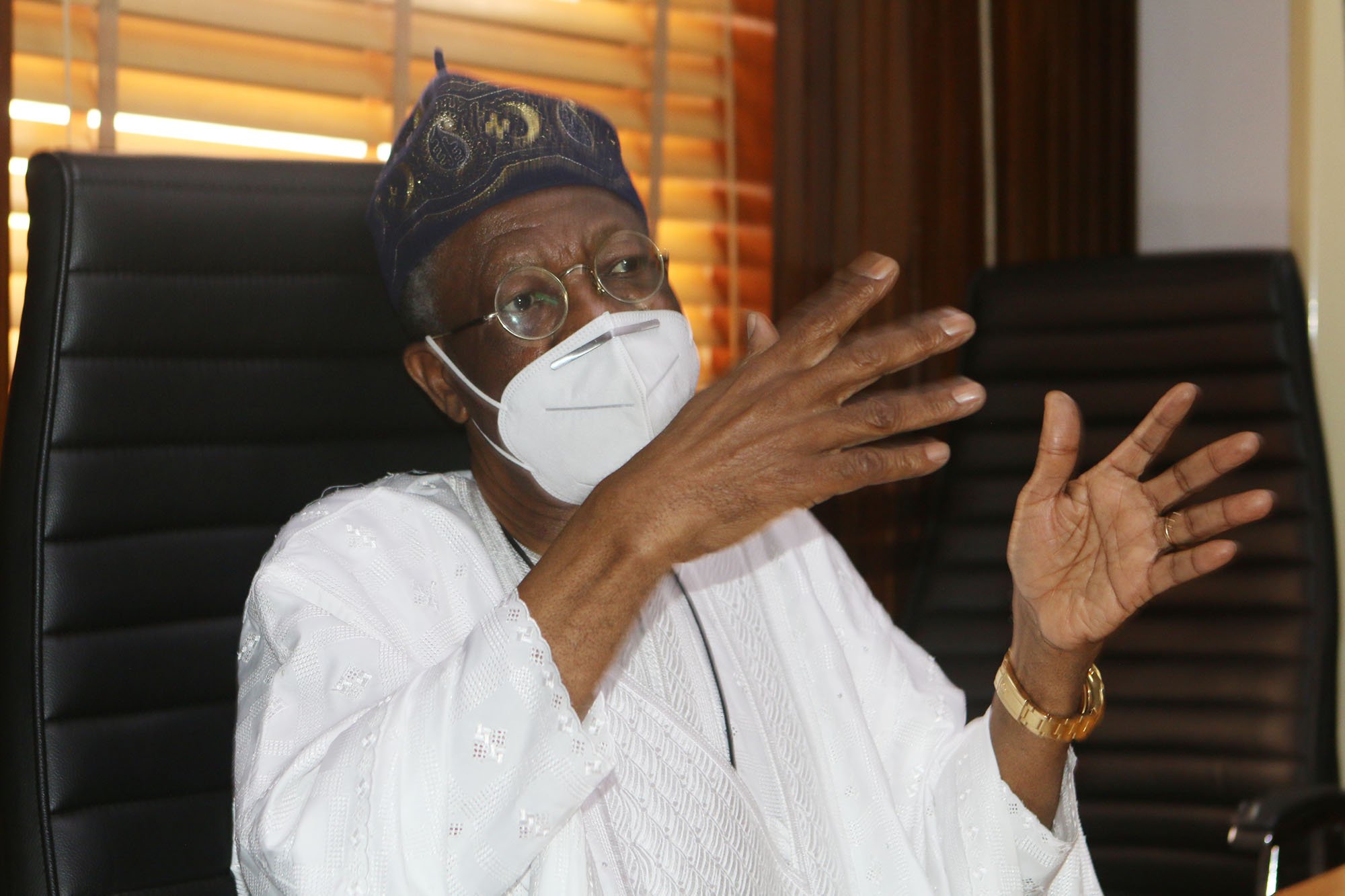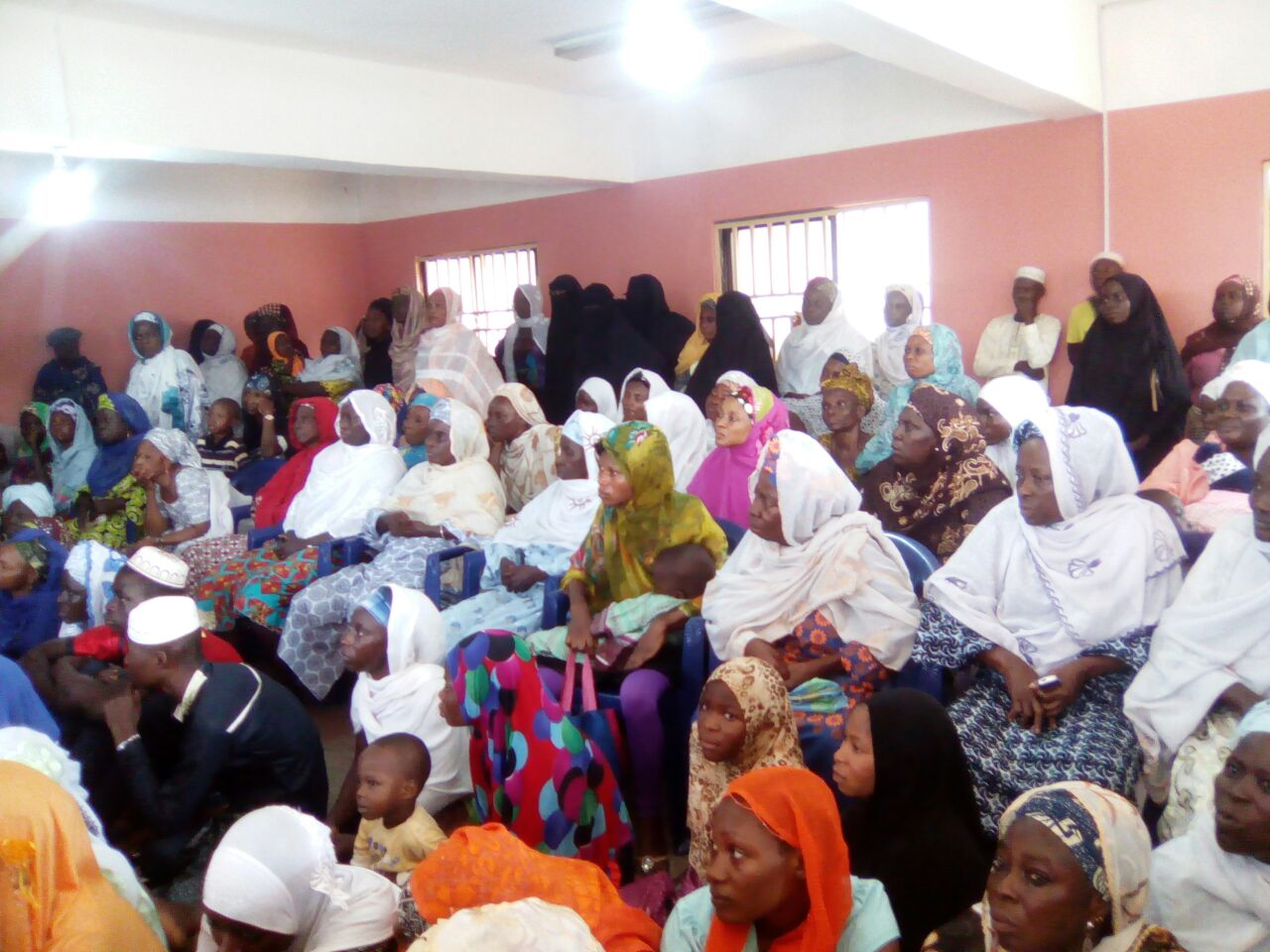Isa Ali Ibrahim, equally referred to as “Sheikh Pantami” comes to you as what the “soro soke” generation will call a “fresh boy.” From what you see in his most frequently used media photograph, he is fair complexioned, has chubby cheeks, wears a smile and adorns a thin-rimmed pair of glasses. He is a young man as well, having been born in 1972.
His profile would also, most probably impress you. He obtained a university degree in the much sought-after Computer Science course in 2003, before adding a masters in the same institution and capping these with a doctorate from Robert Gordon University, Aberdeen, Scotland. He subsequently attended short courses in a number of universities and institutes in the United States of America, USA; Switzerland and the United Kingdom, UK.
Relatively unknown, he stepped on the national political stage, when he was appointed Director-General and Chief Executive of the National Information Technology Development Agency, NITDA, September 26, 2016. Just about three years after cutting his teeth in public service, he was appointed a Member of the Federal Executive Council, FEC, following his call-up as Minister in the reconfigured Federal Ministry of Communications and Digital Economy.
If Pantami was previously anonymous in the crowd of public servants jostling for media attention in Nigeria, however, he has been a more visible subject of public discourse in recent weeks, for the wrong reasons. The fossils of his ideological constitution as a longstanding bigot, an unconscionable religious demagogue, an irredeemable dogmatist, are in the public space for discussion and dilation.
Advertisement
A publication by an online media, associated Pantami with the erstwhile leader of Boko Haram, Mohammed Yusuf. The terrorist organisation has held Nigeria by the jugular in the last decade, upstaging peace in the North East, precipitating random lethal attacks in the region, engendering civilian and military casualties and causing severe dislocations and refugee crisis in the zone. The online publication under discussion, also insinuated that Pantami had been placed on the terror watch-list of the USA.
The allegation by the online medium, opens a pandora box, with allusions to audio reports of Pantami delivering lectures sympathetic to Boko Haram, and archival tapes of the young minister expressing support to the Taliban and Al-Qaeda back in 2004. Pantami in a 2006 speech, also mourned the death of the Al-Qaeda leader in Iraq, Abu Musab al-Zarqawi. There are indeed, viral videos of his virulent speeches and engagements.
Pantami has attempted to pour cold water on these allegations. He claims he harbours no hatred for Christians, as evidenced by the fact that some of his staff are of the Christian faith. On April 17, 2021, in what seemed like a recant, Pantami proferred that: “Some of the comments I made years ago that are generating controversies now, were based on my understanding of religious issues at the time and I have changed several positions taken in the past, based on new evidence and maturity.” In a manner of speaking, Pantami wants us to understand and accept that he is “born again.”
Advertisement
Pantami has forgotten, however, that there is blood on his hands. Back in 2004 when he was Chief Imam of the mosque of the Abubakar Tafawa Balewa University, ATBU, Pantami issued a virtual fatwa on 17-year-old Sunday Nache Achi, a leader of the student ministry of the Evangelical Church Winning All, ECWA, in the institution. The young Achi’s father, Prof Samuel Achi in an interview, volunteered that in response to preachments by Pantami during a service in the mosque, his late son was dragged from his room on the campus and taken to the university mosque where Pantami was presiding. He was strangled to death and his body thrown outside the mosque. He was alleged to have distributed religious tracts which content allegedly defamed Prophet Muhammad, a proposition punctured by the older Achi.
Sunday Achi’s parents had to go through the tortuous motions of reaching out to Ahmed Makarfi, governor of Kaduna State at the time, to admonish his counterpart in Bauchi State, Adam Muazu, to facilitate the release of the body of the young Achi to his family for internment. Pantami has forgotten, time has not. If the young Sunday Achi hadn’t been so wickedly murdered, he would have been 34 years of age this year, contributing his quota to national, nay global development.
March 20, 2020, the same Pantami at the commissioning of the annexe of the Nigeria Communications Commission, NBC, in Jabi, Abuja, ejected reporters from the African Independent Television, AIT; Raypower radio and Punch newspapers, before the start of the event. He labelled them unfriendly to the administration of President Muhammadu Buhari who was scheduled to commission the project. That other media houses did not walk out of the ceremony in solidarity with their colleagues who were so humiliated and boycott its coverage, remains a surprise to me. They needed to make a serious point and vindicate the saying of the legendary Afrobeat musician, Fela Anikulapo Kuti, who sang “Everybody get im power.”
The minister’s spin doctors who initially alleged that their boss was being harangued by those opposed to the ongoing registration of telephone lines against national identification numbers by Pantami’s ministry have since taken a few steps back in recent days.
Advertisement
That Isa Pantami had such a controversial past, calls to question, the thoroughness, the rigour which characterises the screening of nominees for political appointment. The security services by the way, characteristically, make heavy metal of the process of “checking out” nominees for appointive offices. So how come an Isa Ali Pantami was not found out for who he is, first when he was appointed DG of NITDA in 2016, and subsequently, when he was nominated Minister in 2019?
We recall for instance that back in 2015, four years before Pantami was appointed into the federal executive council, it was a long waiting game for Nigerians as they eagerly awaited the constitution of the government’s apparachik by Buhari. The famous alibi at the time as propounded by defenders of the administration was that the nominees were being subjected to rigorous security search-light. When the cabinet was eventually constituted six months into the life of the regime, however, there were no surprises whatsoever.
And just in case screening is usually truly thorough and forensic, how come the results did not turn out an overtly extremist, dangerously radicalised and latently bigoted Pantami in the interrogation process? To make assurance doubly sure, Pantami was actually dismissed from his job as a cleric, by the authorities of ATBU, for incendiary preachments and religious incitement capable of breaching public peace, which is a major blot on his curriculum vitae.
Dennis Amachree a retired Assistant Director with the Department of State Services, SSS, has opined in an interview with Punch newspapers, that much as Pantami was screened following the submission of his name for appointment as minister by the President, the final decision on his eventual appointment, resides in the appointing authority.
Advertisement
Pantami’s resume includes the facts that he was educated by scholars who included Muhammad Umar Fallatah, Muhammad Ibn Al Uthaymeen and Abdulmuhsin Ibn Abbad. Who are they? What was the course content of his engagements with these intellectuals? With the race to succeed Buhari hotting up ahead of 2023, have we envisioned the possibility of having a president in the mould of Pantami?
Elsewhere, Pantami will simply tow the path of honour, file in his letter of resignation and move on. He has a doctorate in a branch of knowledge, information technology, which is very highly demanded across the world so he can always ply his trade elsewhere. It is indeed immoral for him to continue being remunerated remuneration, from the taxes of Nigerians, many of whom are of the religion he loathes so bitterly.
Advertisement
Yet, the point has been repeatedly made of the imperative for a more painstaking process leadership recruitment process in Nigeria, against the backdrop of the recurring emergence of motley characters, whose lack of substance, aptitude and capacity, continues to drag the nation down. Pantami’s trajectory is a huge lesson for those who think their past can be buried in the sands of time. Time indeed never loses its sense of memory.
Dr Tunde Olusunle writes from Abuja
Advertisement
Views expressed by contributors are strictly personal and not of TheCable.
Add a comment






